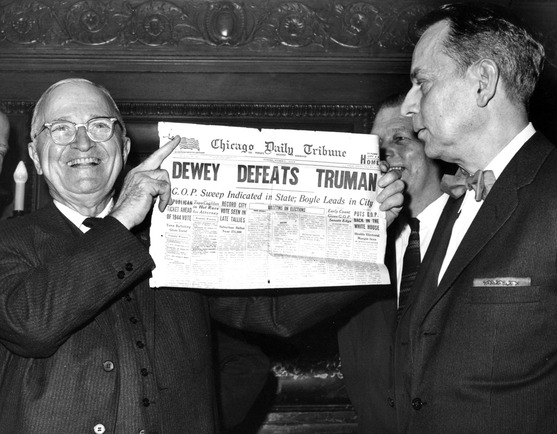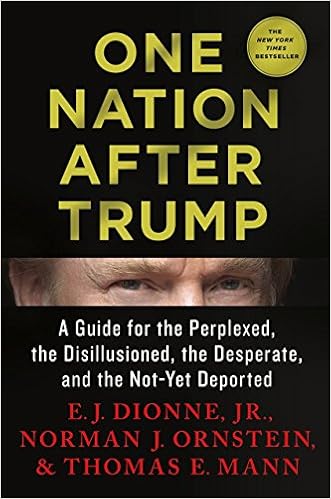* * * *
As noted, this blog honors Harry Golden and his Carolina Israelite. At the top of this page you’ll see ABOUT THAT “WASP” NAME and ABOUT THE BLOG. That’s where I set out what kind of posts I hoped to do. (To honor Harry.) The categories on the right side include Politics, but the last politics post I did was back on November 28, 2022. (Just after the mid-term elections. “After the election 2022…”) So it’s about time for a new post on today’s politics.
In part this post will include a review of past posts to see how any predictions turned out.
Like back in June 2018 I posted “The rope has to tighten SLOWLY.” It started off talking about then-president Trump’s pardon power, and especially whether he could pardon himself. I first wanted to call the post, “The truth will come out.” (Because that’s what I believe.) But then I started re-reading All the President’s Men, the 1974 book by Bob Woodward and Carl Bernstein. I recalled the part where Deep Throat lectured Woodward on the importance of building a conspiracy investigation slowly, “from the outer edges in.” (In an obscure parking garage at 3:00 a.m.) Or as one old saying goes, “The wheels of justice grind slowly…”
That last was addressed to those who asked, “Why is the Mueller investigation taking so long?” (Five months after Mueller was appointed, bringing up “the classic American need for instant gratification.”) But back to 1974, and Deep Throat lecturing Woodward on the importance of building an investigation slowly. You can read the full lecture – and background – at page 196 of the Simon and Schuster (1974) hardback, but here’s the highlight:
“A conspiracy like this … a conspiracy investigation … the rope has to tighten slowly around everyone’s neck. You build convincingly from the outer edges in, you get ten times the evidence you need against the Hunts and Liddys. They feel hopelessly finished – they may not talk right away, but the grip is on them. Then you move up and do the same thing to the next level. If you shoot too high and miss, then everybody feels more secure. Lawyers work this way. I’m sure smart reporters do too. You’ve put the investigation back months. It puts everybody on the defensive – editors, FBI agents, everybody has to go into a crouch after this.”
The book added, “Woodward swallowed hard. He deserved the lecture.”
And speaking of slow wheels of justice, “Did they have to grind this slow?” Meaning it’s only now – three years after he left office – that Trump finally got “convicted” of something. Specifically, the May 9, 2023 jury verdict saying he’s Liable for Sexual Abuse and Defamation. (And must pay $5 million in damages.) Back in June 2018 I wrote that the federal Mueller Investigation might end – and it did, without accountability – but that wouldn’t be the end of the story. The Mueller investigation would be followed by “a whole new series of state criminal proceedings.” (As in a state like New York, “where ‘The Donald’ or his minions have done business.”) And then, I said, “the ‘noose-tightening’ would start all over again.” And it did, and it continues.
Yet it remains true that from 1973 to 2023, Trump dodged all legal accountability for his actions. (For an analysis of his tactics – “deny, deflect, delay” – How Trump Survived Decades of Legal Trouble.) But even with the sex-abuse and defamation verdicts, he remains for many people “Teflon Don.” See for example the recent poll saying Biden trails Trump in the run-up to the 2024 presidential election. I’ll address that bombshell in a future post – including a reference to polls showing a “red wave” in the 2022 mid-terms – but for now I’ll say that’s hardly surprising. In November 2021 I posted Donald Trump – the newest “Undead Revenant?”
Trump seem[s] to rise from the political ashes, not unlike the proverbial Phoenix. Or maybe it’s more accurate to say rising again, like a &^%$ Zombie. (Which the Cambridge Dictionary defines as a frightening creature, a seemingly dead person “brought back to life, but without human qualities.”
On the other hand, the Undead Revenant post did mention one good reason Trump might not run in 2024. Call it the “Adlai Stevenson effect.” Some of his advisers – back in November 2021 – had a plan to dissuade him. They pointed out that if Trump ran but lost again in 2024, “he would join Stevenson as one of history’s serial losers,” and Trump “hates losers.” (See also Donald Trump can’t stand being called a “loser.”) Maybe that will turn out to be true.
All of which brings up the so-called old Chinese curse, “May you live in interesting times.”
Wikipedia noted, “While seemingly a blessing, the expression is normally used ironically.” The irony is that to many, “life is better in ‘uninteresting times’ of peace and tranquility than in ‘interesting’ ones, which are usually times of trouble.” (The way I heard it the curse went, “May your children live in interesting times.” Meaning somebody must have told our parents that.)
Anyway, I’d say “time of trouble” aptly describes today’s political climate in Washington. Or as another Chinese saying goes, “Better to be a dog in times of tranquility than a human in times of chaos.” That chaos too could describe today’s politics in Washington. Which means that as interesting as it’s been since 2016, it’s about to get a whole lot more interesting.
Who knows, with a few more convictions that “Adlai Stevenson effect” may yet kick in.
.* * * *

.* * * *
The upper image is courtesy of Wheels Of Justice Grind Slowly – Image Results. It’s from a “Friends of Liberty Blog.” I’m not sure which “Chris Robertson” the cartoon referred to. A Google search showed an actor of that name convicted of tax evasion, a “David Chris Robertson” convicted of sexual exploitation of a minor, and a Christopher Ray Robertson convicted of armed robberies. Also re: “Wheels of justice.” The full quote: “The wheels of justice turn slowly, but grind exceedingly fine.”
Re: Trump’s “conviction.” Technically, or perhaps hyper-technically, a person is “convicted” only in a criminal case. See Difference Between a Civil Judgment & Conviction.
Re: Adlai Stevenson effect. Undead Revenant included this from Adlai Stevenson – Slate:
Today we’re quick to banish presidential losers… Yet one White House loser—a serial loser, at that—still haunts the political landscape: Adlai Stevenson. Every political season the pundits find some reason to resurrect him, invariably in a flattering light… Stevenson not only lost nobly; he made losing seem noble in and of itself.
I noted, “It’s hard to imagine Trump making a second-run loss seem ‘noble in and of itself.’”
Also, it turns out there were actually three “Adlais.” The two-time presidential candidate – defeated twice “in a landslide by Republican Dwight D. Eisenhower in 1952 and 1956″ – was Adlai Stevenson II (1900-1965). See also Adlai Stevenson I – Wikipedia (1835-1914), and Former Illinois Sen. Adlai Stevenson III dead at 90 (1930-2021.) As to the latter:
His son confirmed his death to The Chicago Sun-Times… “He just faded away,” Adlai Stevenson IV told the newspaper. Stevenson [III], a member of a dynastic family in Illinois politics, spent 11 years in the Senate and unsuccessfully ran for governor of his home state twice. The former senator was the son of former Gov. Adlai Stevenson II and great grandson of former Vice President Adlai Stevenson.

The lower image is courtesy Adlai Stevenson II – Wikipedia. Caption: “A poster from the 1952 campaign.” I originally planned to use the image at left, courtesy of Trump As Zombie Images – Image Results. It accompanies a set of notes from Mind Over Media. Their slogan: “PROPAGANDA IS ALL AROUND US. Do you know how to recognize and respond to it?” A related note: “Propaganda education for a Digital Age.” As to the image, the article provides Background information: “This is an artistic piece relating Donald Trump to the film ‘They Live.’ It was created by someone called Hefner for personal expression, and serves to show how Trump is just another media based demagogue trying to shape your views for you.” Technique used: “Attack Opponents.” It’s propaganda because: “It attacks Trump and is trying to wake people up to the idea that they are being controlled.” (Good luck on that one.)
One final note about the “so-called old Chinese curse, May you live in interesting times. According to Wikipedia, it’s actually “an English expression that is claimed to be a translation of a traditional Chinese curse.” The article added that despite being so well known in English, “no actual Chinese source has ever been produced.” The saying “better to be a dog in times of tranquility” is the closest parallel that’s been found.
.* * * *








![Will I REALLY live to 120?: On Turning 70 in 2021 – and Still Thinking “The Best is Yet to Come” by [James B. Ford]](https://m.media-amazon.com/images/I/41goY63cZ1L.jpg)

 I just got back from a lightning, one-week mini-vacation. First to Rockville Maryland for my grandson’s wedding, then to Pigeon Forge Tennessee for a family get-together. (Including a day-visit to
I just got back from a lightning, one-week mini-vacation. First to Rockville Maryland for my grandson’s wedding, then to Pigeon Forge Tennessee for a family get-together. (Including a day-visit to  However, not that long ago even great political arch-enemies
However, not that long ago even great political arch-enemies 

 As to going back, I noted a post from November 8, 2016,
As to going back, I noted a post from November 8, 2016,  To finish that thought: It’s been a long haul, but over the last four years I’ve evolved, from being a “moderate” (all “nicey-nicey”), to a Contrarian, and from there to an Independent. (Used in a sentence, “Why would anyone not want to be an Independent, like
To finish that thought: It’s been a long haul, but over the last four years I’ve evolved, from being a “moderate” (all “nicey-nicey”), to a Contrarian, and from there to an Independent. (Used in a sentence, “Why would anyone not want to be an Independent, like  Or this: As someone who “takes up a contrary position, especially a position that is opposed to that of the majority, regardless of how unpopular it may be.” But that didn’t sound quite right either. I wasn’t always opposed to popular opinion. (For example, look at the “popular opinion” of 81 million American voters in the last election.) So eventually – over the last four years – I ended up changing from being a Contrarian to an Independent, “just like Moses and Jesus.” (See July 2019’s
Or this: As someone who “takes up a contrary position, especially a position that is opposed to that of the majority, regardless of how unpopular it may be.” But that didn’t sound quite right either. I wasn’t always opposed to popular opinion. (For example, look at the “popular opinion” of 81 million American voters in the last election.) So eventually – over the last four years – I ended up changing from being a Contrarian to an Independent, “just like Moses and Jesus.” (See July 2019’s 

![The Great Democracies, 1958 (A History of the English-Speaking Peoples Book 4) by [Winston S. Churchill]](https://m.media-amazon.com/images/I/41iA-YWdrsL.jpg) Beginning in February 5, 2020, and extending up to the election that November, I quite often had trouble staying asleep. (Worrying about the future of this country.) I wrote back in February 2020 that “at night – when I can’t get back to sleep around 3:30 or 4:00 a.m. – I’ve taken to reading
Beginning in February 5, 2020, and extending up to the election that November, I quite often had trouble staying asleep. (Worrying about the future of this country.) I wrote back in February 2020 that “at night – when I can’t get back to sleep around 3:30 or 4:00 a.m. – I’ve taken to reading  Getting back to the long view (and being able to sleep better at night): Back in the February 2020 rough draft, I also noted reading
Getting back to the long view (and being able to sleep better at night): Back in the February 2020 rough draft, I also noted reading 